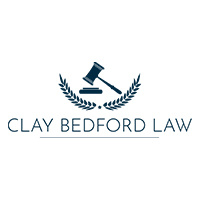Soulsbyville Felony Lawyer, California
Not enough matches for Soulsbyville Felony lawyer.
Below are all Soulsbyville Criminal lawyers.
Clay Bedford
✓ VERIFIEDCriminal, DUI-DWI, Misdemeanor, Felony, Traffic
I am an attorney licensed to practice law in the State of California. My practice is limited to criminal defense and juvenile cases. The criminal... (more)
David Carl Beyersdorf
White Collar Crime, Felony, DUI-DWI, Criminal, Car Accident
Status: In Good Standing Licensed: 20 Years
Thomas Keith Fraser
Criminal, Business Organization, Workout, Reorganization
Status: In Good Standing
Jennifer Janet Lothert
Education, Income Tax, Lawsuit, Criminal
Status: In Good Standing Licensed: 21 Years


